Introduction to Cruelty-Free Beauty
Defining Cruelty-Free and Ethical Skincare
In the realm of beauty and personal care, “cruelty-free” refers to products that have not been tested on animals at any stage of their development. Ethical skincare takes this a step further, encompassing not only cruelty-free practices but also considerations such as all-natural ingredients, chemical-free formulations, eco-aware packaging, and the absence of animal-derived ingredients, making them vegan.
Then, “chemical-free” or also “all-natural” refers to products that have nothing else but natural ingredients; no chemicals, and most importantly, no water (which will be explained later in this article and here and here).
The Importance of Making Ethical Choices
Choosing cruelty-free and ethical skincare products is a powerful way to take a stand against animal cruelty and environmental harm. By supporting brands that prioritize these values, consumers can drive change in the beauty industry, promoting the development of humane and sustainable practices. Moreover, ethical choices often lead to using products with higher quality, natural ingredients that are beneficial for skin health.
Understanding the Impact on Health and Environment
The impact of skincare products extends beyond personal health to the environment and wildlife. Cruelty-free and vegan products often avoid harsh chemicals and unsustainable ingredients that can contribute to pollution and biodiversity loss. By choosing these products, consumers help reduce the environmental footprint of their beauty routines and support the preservation of natural habitats.
The Rise of Conscious Consumerism
Conscious consumerism is gaining momentum as more people seek to align their purchasing decisions with their ethical beliefs. The beauty industry is witnessing a significant shift as consumers demand transparency, safe ingredients, all-natural and chemical-free formulations, and cruelty-free products. This shift is not just a fleeting trend but a fundamental change in consumer behavior, reflecting a deeper awareness of the interconnectedness of our choices, our health, and the well-being of our planet.
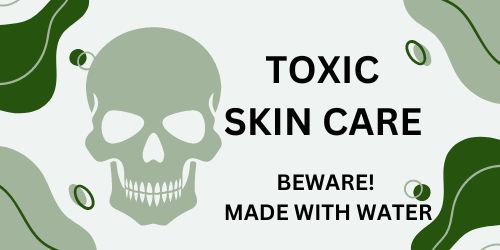
Do you have the most commonly used but toxic, disease bringing chemicals in your skin care? Many chemicals in skincare are hormone disruptors and make menopause symptoms worse.
Find out more…
Deciphering Labels and Certifications
Common Cruelty-Free Certifications and What They Mean
When shopping for skincare products, certifications and logos are a reliable way to ensure that the items align with cruelty-free standards. The Leaping Bunny logo is one of the most recognized symbols, indicating that a product has not been tested on animals at any stage of production. Similarly, PETA’s cruelty-free certification assures that the brand has made a commitment to end animal testing. These certifications involve strict criteria and regular audits, providing consumers with peace of mind about their ethical choices. However, they also impose additional cost, which at the end, the consumer has to pay for.
Ingredients to Avoid in Skincare Products and The Truth Behind ‘Natural’ and ‘Organic’ Claims
Understanding which ingredients to avoid is crucial for maintaining an ethical skincare routine. Common animal-derived ingredients include lanolin (from sheep’s wool), collagen (often from fish or bovine sources), and carmine (a red pigment from cochineal insects). To ensure cruelty-free products, look for phrases like “vegan-friendly” or “free from animal ingredients” on labels and avoid products containing these components. A clear pointer that a skincare product uses chemicals is if it contains water.
Labels such as ‘natural’ and ‘organic’ can be misleading. While they suggest a product is made with wholesome ingredients, they do not necessarily mean the product is cruelty-free or free from harsh chemicals. It’s important to look beyond these claims and scrutinize the ingredient lists to ensure the product meets ethical standards. Only water-free skincare can be chemical-free. Skincare products made with water need chemical preservatives, which can be hormone disruptors, carcinogenic, irritants, harmful to the natural skin flora, and bad for the environment. Water is a key ingredient to avoid.
How to Read and Understand Product Labels
Reading product labels can be daunting, but with a few tips, you can become an informed consumer. Start by looking for cruelty-free certifications such as the Leaping Bunny or PETA’s logo. Next, review the ingredient list for any animal-derived substances. Be wary of vague terms like “fragrance” or “colorants,” as these can sometimes hide animal-derived ingredients. As stated before, one of the biggest red flags is if the skincare product contains water (aqua, h2o, or “juice”) – because then it will contain chemicals.
Additionally, check for symbols indicating the product’s shelf life and recyclability to ensure you’re making environmentally responsible choices.
By becoming adept at deciphering labels and certifications, you can confidently navigate the beauty aisle, making ethical skincare choices that align with your values and contribute to a kinder, more sustainable world.
The Health Benefits of Chemical-Free, Cruelty-Free Skincare
Chemical-Free Formulations and Your Skin
One of the most compelling reasons to choose cruelty-free skincare is the emphasis on chemical-free formulations. Many cruelty-free brands prioritize claims of natural and organic ingredients over harsh chemicals, which can be beneficial for your skin. However, often these claims are misleading and incorrect because they still use water-based formulations. And water-based formulations require synthetic additives, such as parabens, phthalates, and sulfates, which are very unhealthy. By switching to water-free skincare, your skincare routine becomes safer and more nurturing. These water-free formulations are gentler and less likely to cause skin irritation, allergic reactions, or long-term health issues, making cruelty-free products a healthier choice for both your skin and overall well-being.
The Role of Plant Butters and Oils in Skincare
Plant butters and oils play a pivotal role in cruelty-free skincare, offering a rich source of vitamins, antioxidants, and essential fatty acids. Ingredients like shea butter, cocoa butter, and oils such as jojoba, argan, and coconut are renowned for their moisturizing and healing properties. They provide deep nourishment, support skin barrier function, and can help to soothe conditions like eczema and psoriasis. By harnessing the power of these plant-based ingredients, cruelty-free skincare promotes a healthy, vibrant complexion.
Avoiding Allergens and Irritants in Beauty Products
For those with sensitive skin, avoiding allergens and irritants is crucial. Cruelty-free skincare products often exclude common irritants found in traditional beauty products, such as artificial fragrances, dyes, and preservatives. This mindful formulation means that cruelty-free products are more suitable for sensitive skin types and less likely to trigger adverse reactions. By choosing cruelty-free, you’re not only standing up against animal testing but also selecting products that are kinder to your skin.
Long-Term Benefits of Using Ethical Skincare
The long-term benefits of using ethical skincare are significant. By consistently applying products that are free from harmful chemicals and full of natural goodness, you’re likely to see a noticeable improvement in your skin’s health over time. Cruelty-free products can contribute to a more even skin tone, reduced signs of aging, and an overall healthier appearance. Moreover, the peace of mind that comes with using products that align with your ethical values can enhance your sense of well-being, which is just as important as the physical benefits.
In conclusion, cruelty-free skincare offers a multitude of health benefits that go beyond just being kind to animals. It’s about making a conscious choice for healthier skin and a healthier planet. By embracing cruelty-free beauty, you’re choosing a path that benefits not only your own skin but also the welfare of animals and the environment.
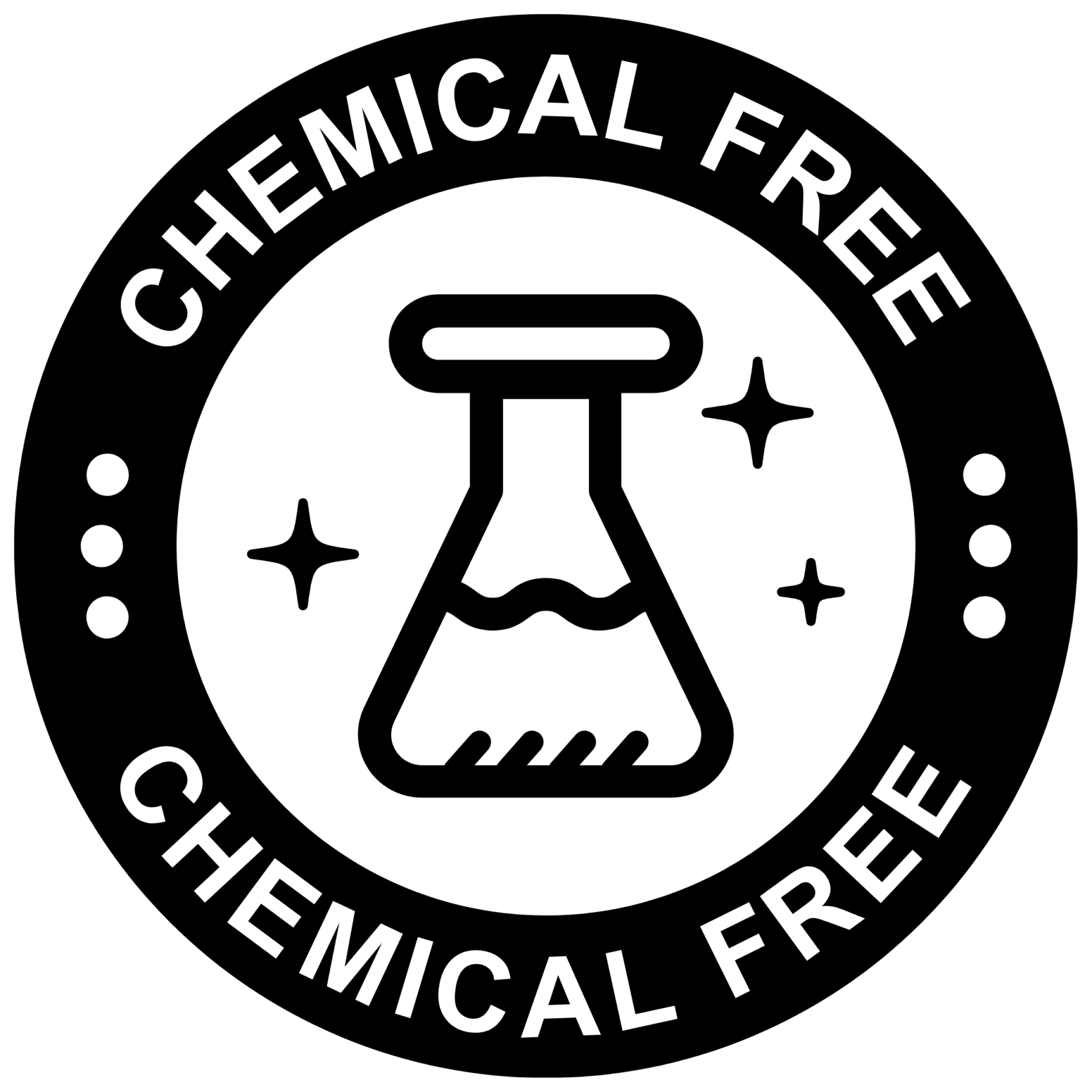
Doubting chemicals in skincare and femcare? Well done! Choose chemical-free products whenever possible.
Environmental and Ethical Considerations
The Impact of Skincare Products on Wildlife and Habitats
The beauty industry’s impact on the environment extends beyond the walls of manufacturing facilities. Skincare products, once used and discarded, can have profound effects on wildlife and their habitats. Ingredients such as triclosan, parabens, and microplastics, commonly found in non-cruelty-free products, can disrupt aquatic ecosystems and harm wildlife when washed down our drains. The ethical choice of cruelty-free skincare is not only about preventing animal testing but also about protecting species from the unintended consequences of our beauty routines.
Sustainability in the Beauty Industry
As the climate crisis looms, natural formulating in the beauty industry has become a pressing issue. Brands are now tasked with reducing their chemical and carbon footprint, which includes everything from ingredients responsibly to packaging. More eco-friendly packaging solutions, such as biodegradable materials and refillable containers, are also on the rise, addressing the issue of packaging waste that contributes to environmental pollution. An interesting aspect is that water-free products can help reduce packaging amount because they are so much richer than water-based skincare, which can contain up to 95% water!
Ethical Sourcing of Ingredients
Behind every skincare product is a chain of ingredients that each have a story. Ethical sourcing ensures that these narratives are positive, involving fair trade and sustainable farming practices. It’s about ensuring that the raw materials used in our skincare products are obtained in a way that respects the environment and the people involved in their production. Brands that commit to ethical sourcing practices not only support the well-being of communities but also contribute to the preservation of natural resources.
Supporting Brands with Ethical Practices
- Research: Before purchasing, investigate a brand’s commitment to ethical practices and that their claims as e.g. all-natural and chemical-free are true.
- Certifications & Patents: Look for certifications such as cruelty-free, vegan, or patents showing they actually own the technology and did the research
- Transparency: Support brands that are transparent about their ingredient lists, allowing consumers to make informed decisions, and not hiding ingredients.
- Community Engagement: Choose brands that engage in community initiatives and support local economies, ensuring that the skin care industry has a positive social impact.
By supporting brands that prioritize ethical practices, consumers can drive the beauty industry towards a more sustainable and compassionate future.
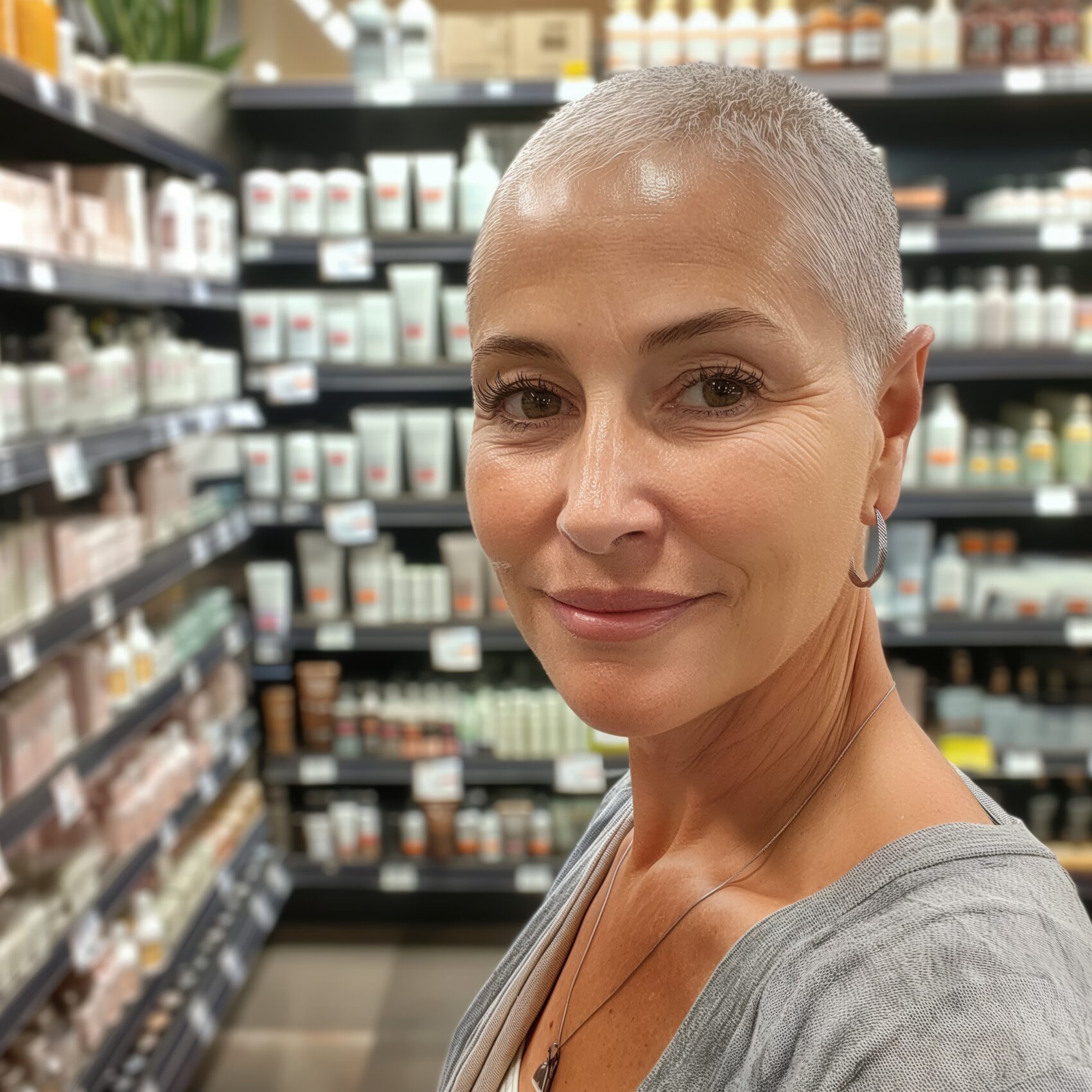
Finally Peace of Mind! NO more worries, no more hassle in checking the labels of creams and lotions.
I found skin care and beauty without chemicals. Chemicals in skin care are hormone disruptors and could turn out very bad for me. I need to stay away from them.
Safe ingredients, no doubts, no compromises and no false promises.
How to Make Ethical Skincare Choices
Assessing Your Current Skincare Routine
Embarking on the journey to ethical skincare begins with evaluating your current regimen. Take stock of the products you use daily, from cleansers to moisturizers, and examine their labels for cruelty-free certifications and ingredient lists, and make sure they are chemical-free. This initial assessment is crucial in identifying items that do not align with cruelty-free and vegan standards, and health standards, setting the stage for a more compassionate skincare routine.
Tips for Transitioning to an Ethical Regimen
Transitioning to an ethical skincare routine can be a fulfilling process. Start by replacing products that are not chemical-free with ethical alternatives as they run out. This gradual shift not only eases the transition but also allows you to research and find products that suit your skin type and standards. When selecting new products, remember to make sure that the products are water-free because only then they can be free from chemicals that pollute the environment, harm animals, and humans.
- Phase Out: Gradually replace your current products with all-natural, cruelty-free options.
- Research: Investigate brands’ claims regarding cruelty-free and chemical-free, and vegan
- Support Ethical Brands: Choose to purchase from companies that align with your values.
- Spread the Word: Share your water-free, chemical-free, cruelty-free choices with friends and family.
Incorporating Plant-Based Ingredients into Your Routine
Plant-based ingredients are often at the heart of cruelty-free skincare. Rich in vitamins, antioxidants, and essential fatty acids, they provide a natural and effective alternative to animal-derived ingredients. Incorporate products with plant butters and oils, such as shea butter and cocoa butter, which are known for their nourishing properties. Emphasize the use of products labeled as “vegan” or “free from animal ingredients” to ensure your skincare routine is truly ethical.
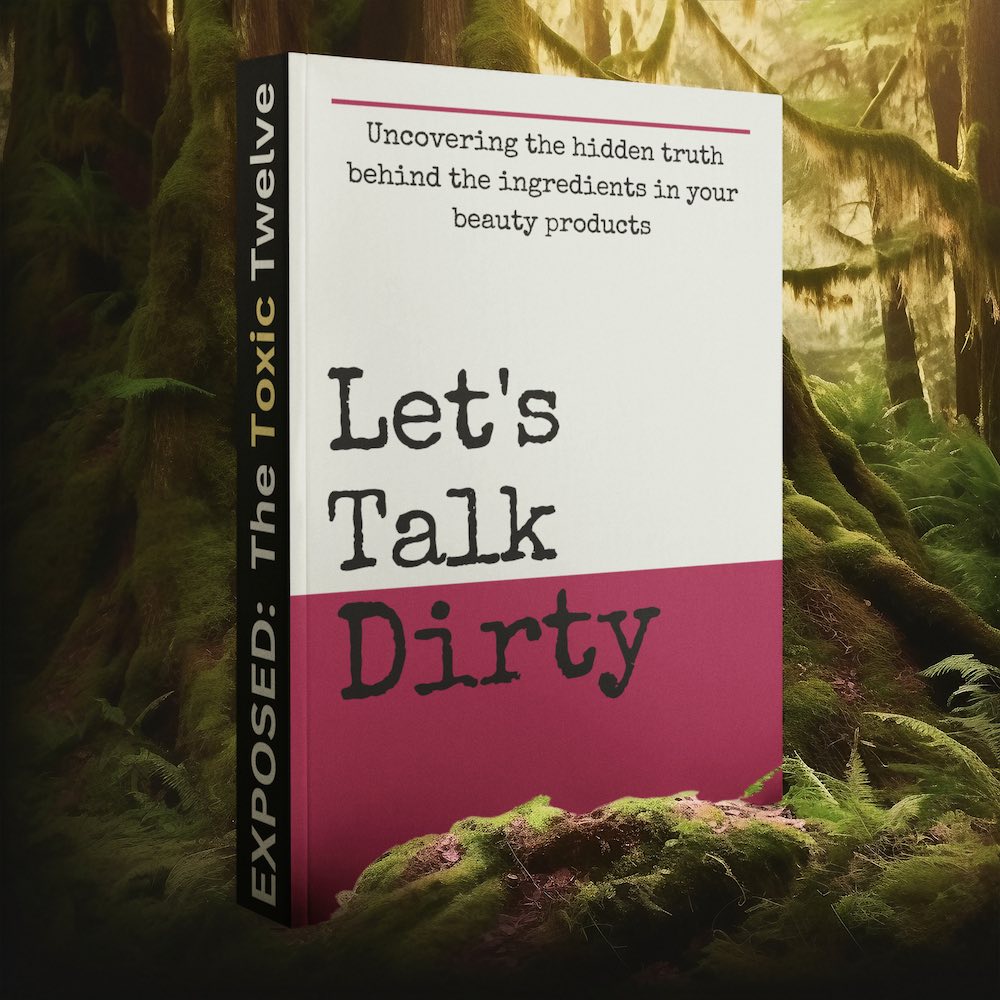
Feeling You Have a Right to Safe Beauty & Fem Care?
If so, it may be time for a change. It starts with knowledge. We have a few suggestions in our new guides.
The Role of Community and Advocacy
Joining Online Forums and Communities
As the movement towards chemical-free and cruelty-free beauty gains momentum, the power of community becomes increasingly evident. Joining online forums and communities dedicated to ethical skincare is a vital step for those looking to deepen their understanding and commitment. These platforms offer a space to connect with like-minded individuals, exchange information about cruelty-free brands, and discuss the latest industry developments. By participating in these communities, consumers can find support in their journey towards more ethical choices and discover new products that align with their values.
Sharing Knowledge and Experiences
Sharing personal experiences and knowledge is a cornerstone of advocacy in ethical beauty. When individuals recount their transitions to chemical-free, cruelty-free skincare routines, they inspire others to consider their own choices. Posting reviews, creating tutorials, and discussing the benefits of these products not only educates but also empowers others to make informed decisions. This collective wisdom is a powerful tool in spreading awareness and influencing others to take a stand against animal cruelty and chemical-flooding and greenwashing in the beauty industry.
Advocating for Chemical-Free and Cruelty-Free Products
Advocacy for safe, chemical-free and cruelty-free practices extends beyond personal use; it involves voicing concerns and demanding change. Consumers can advocate by signing petitions, supporting legislation that bans animal testing and use of chemicals, and engaging with brands to inquire about their formulations and practices. By holding companies accountable for greenwashing and misleading practices and praising those that adhere to ethical standards, consumers drive the demand for better products and encourage more brands to consider animal welfare in their business models.

Bette 100% All-Natural Relaxing Lavender Body Lotion.
Chemical-Free
Your relaxing night time body moisturizer to leave the day’s stress behind. Decompress and wish your body good night with the calming scent of lavender.
Conclusion: Embracing Ethical Beauty
Summarizing the Benefits of Cruelty-Free Skincare
The journey through the realm of cruelty-free beauty reveals a landscape where ethics and aesthetics converge. Cruelty-free, chemical-free skincare offers a plethora of benefits, from reducing the risk of allergies and irritations due to fewer harsh chemicals, to providing high-quality ingredients that are kinder to the skin. These products are not only environmentally friendly, but they also encourage innovative formulations and ethical peace of mind, knowing that no animals were harmed in their making.
The Future of Beauty: Trends and Predictions
As we look to the future, the beauty industry is poised to continue its shift towards more ethical practices. The rise of in vitro testing and computer modeling as alternatives to animal testing is paving the way for advanced, cruelty-free research and development. With laws like the California Cruelty-Free Cosmetics Act and the European Union’s Ban on animal-tested cosmetics, we can expect a surge in cruelty-free products on the market. Moreover, the increasing consumer demand for transparency and banning of forever-chemicals is likely to drive further innovation in this space.
Taking Personal Steps Towards Ethical Skincare
Embracing ethical skincare begins with assessing your current routine and making conscious choices. Transitioning to a chemical-free, cruelty-free regimen is simpler than often thought. Choose products with cruelty-free logos and using only natural plant-based ingredients, which really just means to make sure the product is made without water (or juice). It’s about making informed decisions, supported by reliable information and resources, to ensure that your beauty routine reflects your values.
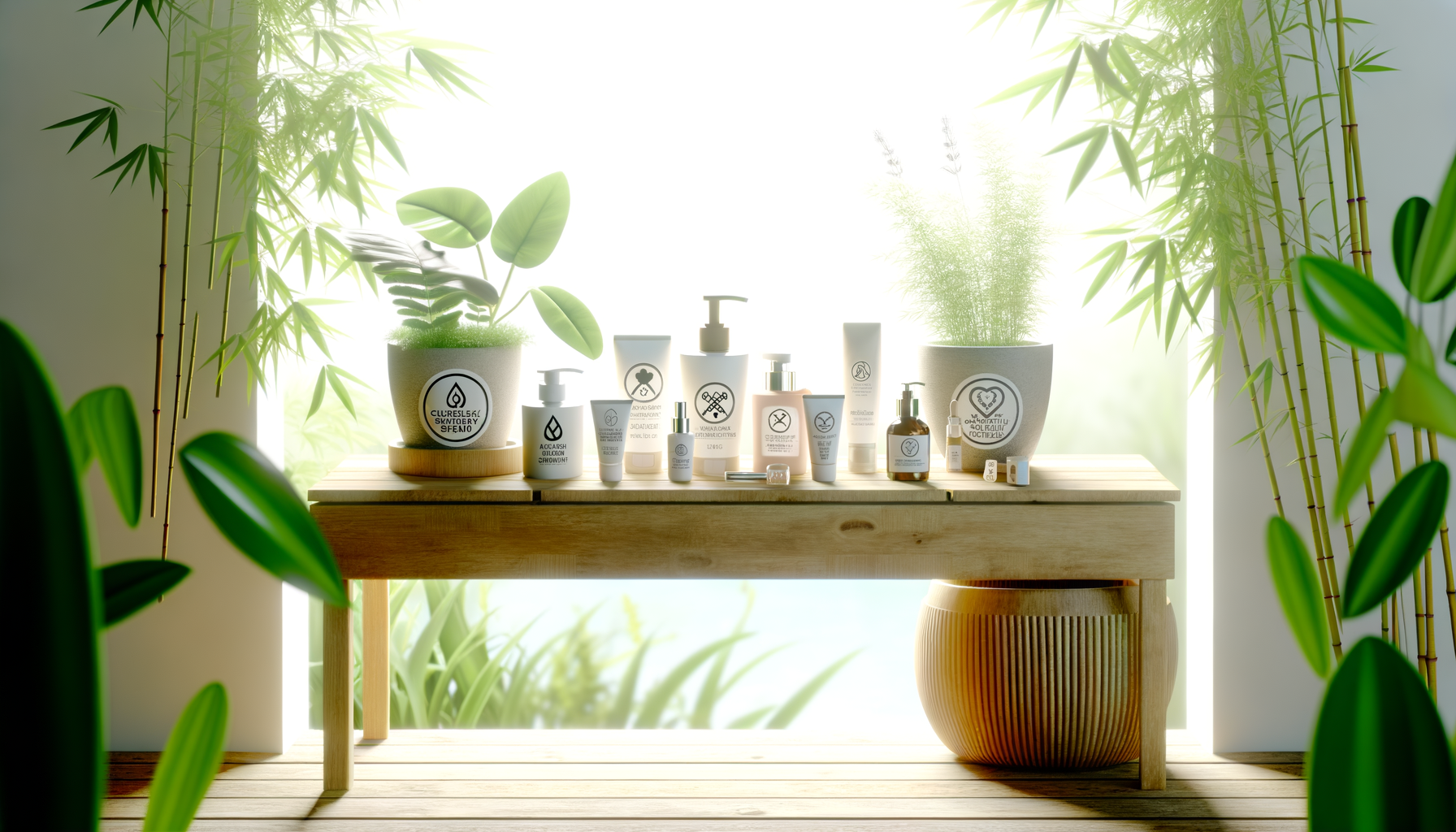




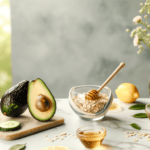


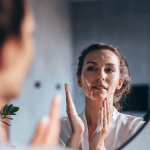
I absolutely loved reading your guide on chemical-free and cruelty-free beauty! It’s so informative and empowering to see how making ethical skincare choices can positively impact not just our health but also the environment and animal welfare. I appreciate the detailed explanations on how to decipher labels and the importance of certifications like the Leaping Bunny and PETA’s cruelty-free logo. The emphasis on avoiding water-based formulations to ensure truly chemical-free products was an eye-opener for me. Your guide has inspired me to reassess my skincare routine and make more informed, ethical choices. Thank you for sharing such valuable insights and practical tips!